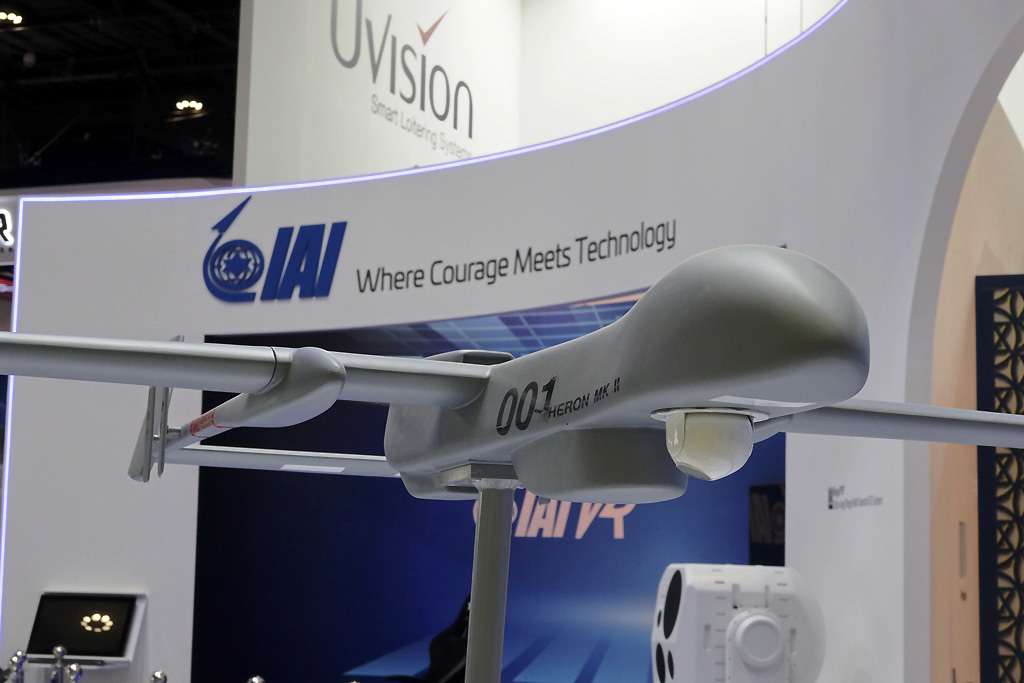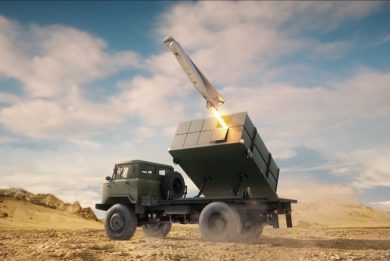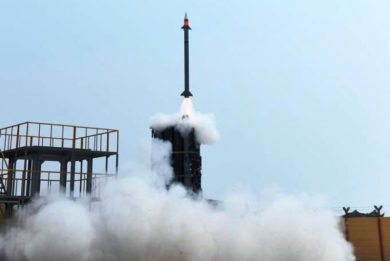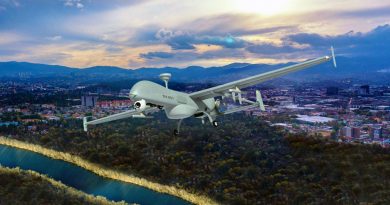
IDEX 2025 – Israel Aerospace Industries looks to the future
IDEX 2025 saw considerable participation of Israeli defence companies, many of them unveiling new products, showing that the relationship with at least part of the Arab countries was not affected by the events of October 7th, 2023. Israel Aerospace Industries, IAI in short, was one of the major Israeli companies that took part in IDEX 2025. EDR On-Line met the company President and CEO, Boaz Levy
Appointed as the head of the company in November 2020, Boaz Levy has considerable experience in air defence systems and missiles, first in the military and then in the industry, as he was the lead engineer in the development of the Arrow anti-ballistic missile system and a key player in the Barak programme. “Israel and the United Arab Emirates have enjoyed a good relationship since the signing of the Abraham Accords in 2020, and we are very proud to be here at IDEX. It is not our first time, and we aim to cooperate with the UAE as we have the same challenges and, unfortunately, face the same type of threats,” Boaz Levy states. There is a lot of room for cooperation, according to IAI’s President and CEO. “We believe that the lessons learned, the fact that our systems have been proven on the battlefield, and the fact that we deal with cutting-edge technology, these three factors make us very relevant here, so we are looking to grow our cooperation with the local industry further to develop better solutions for our customers.”

Many of these solutions consider threats coming from the third dimension, some of them new. “We are facing several new kinds of attacks, mainly of two types; first, we have ballistic missile attacks. I think the recent war’s major impact was in the scale of attacks. Just a few years ago, nobody would have thought that any leader would dare to launch 200 of these missiles, each carrying a few hundred kilograms of explosives, toward populated areas. The Iranian regime did it. They did it in a synchronized way that really required the capability of our systems. We designed the Arrow many years ago, tested it, prepared the country for that, and had the shield of ballistic missile defence capabilities tailored to protect the population. And the fact that the population in Israel was disciplined enough to go into their shelters with a few minute’s notice was also a key factor,” Boaz Levy underscored.
“The other element was technology. We have prepared technology that gives us the capability to counter those threats. And at the end of the day, the operators of the Israeli Air Force did a wonderful job utilizing these technologies as part of a total solution. The fact that the next day, the population of Israel went to work as if nothing happened, is a great victory for us,” he added.
Another threat appeared during the recent confrontation. “The drone attacks generated a considerable sense of insecurity in Israel. Our Air Force did a wonderful job, but there was still leakage. Therefore, our Ministry of Defence asked us to develop a solution. I am very proud to share that about three weeks ago, we demonstrated a new capability to counter those kamikaze drones. And we are currently about to market this solution, which is based on three levels of interceptors for very short-range to medium range,” Mr. Levy unveiled, adding that hopefully, the MoD will take a decision soon.
“I would also like to emphasise two other systems. One is our air and missile defence capability based on the Barak. I consider it the best solution for both air- and land-based applications,” Boaz Levy said, adding that the system can defeat anything from UAVs and fighters to cruise and ballistic missiles.

Another area in which IAI is expanding its activities is space. “We have seen through all the conflicts that space has become a major issue. On one side, we have observation satellites, which allow us to have a clear picture with a certain revisiting time; adding a layer of artificial intelligence allows us to redistribute the right picture to the right level, from decision-makers down to the soldier on the field,” he said, underlining that the most difficult issue is to provide the right image to the right operator. This is true in all domains, including that of air defence. “We are working with sophisticated algorithms to improve our capabilities, some of which are based on artificial intelligence.”
Regarding land warfare, IAI is putting a lot of effort into providing the Army with autonomous systems. “We have some autonomous vehicles that can do the job instead of soldiers, eventually performing even better. These systems save lives, which is the most important thing right now. I think that the combination of soldiers controlling the autonomous capabilities is the one that will lead us to the future,” noted Levy. Asked about the issues linked to weaponised unmanned ground vehicles, he said, “We have our own lessons learned. I think that the war in Israel changed a lot, and I think that most of Israel’s allies know about it and that technology improves and thus, our capabilities. Many of those lessons learned are implemented into our systems, generating solutions that militaries from all over the world are very interested in,” Boaz Levy stated.

Asked about future technologies, the CEO connected AI to Big Data and Edge Computing; “You cannot perform AI if you don’t have enough data, you cannot have enough data if you do not have powerful capabilities in terms of computing. All goes together. But I believe that the major effort is in sensors – seekers, radars, optics, whatever you can collect from your area and bring it as data, so you’ll be able to analyse it in the system that feeds the big data.”
Not surprisingly, at IDEX 2025, IAI unveiled its MOSP 5000 (Multi-Mission Optronic Stabilized Payload), a long-range observation system with three observation channels.
Photos by P. Valpolini



